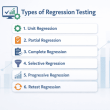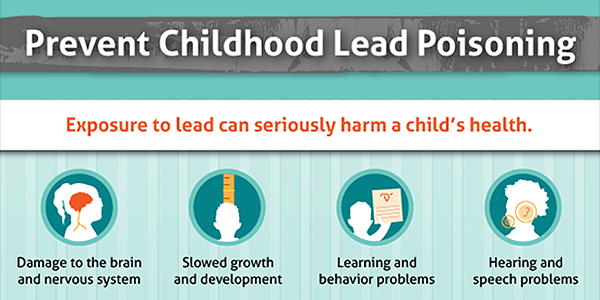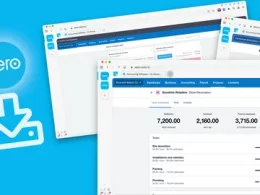How to Keep Your Children Safe from Poisoning at Home: Essential Child-Proofing Tips
As parents, our top priority is ensuring our children grow up safe and secure. We carefully watch over their play, nutrition, and overall wellbeing. But despite our vigilance, some dangers can slip unnoticed right into our own homes—especially the risk of poisoning.
Did you know that over 50% of poisoning incidents happen right at home? These accidents can be life-threatening, but the good news is that most are preventable. With some simple steps and awareness, you can dramatically reduce the risk of poisoning and protect your little ones from harm.
In this comprehensive guide, we’ll explore critical child-proofing strategies and safety tips to help you create a safer environment. From securing household chemicals to safe medication storage and kitchen safety, here’s what every parent needs to know.
The Hidden Dangers of Household Poisoning
Poisoning can occur accidentally or intentionally, but most cases involve young children exploring their environment. They are naturally curious and often put things in their mouths without understanding the danger.
Common sources of household poisoning include:
- Cleaning products (detergents, disinfectants, bleach)
- Medications and vitamins
- Personal care items (lotions, perfumes)
- Pesticides and insecticides
- Household plants that are toxic
- Food items that are unsafe if ingested
Unintentional ingestion of even small amounts of these substances can cause serious health issues, including poisoning, burns, or allergic reactions.
Child-Proofing Your Home: The First Line of Defense
Prevention begins with proactive child-proofing. Here are essential steps to make your home safer:
1. Store Dangerous Substances Out of Reach
- Keep all cleaning supplies, chemicals, and medicines in high cabinets or locked storage spaces.
- Use child-proof locks on cabinets and drawers containing hazardous items.
- Store medications, vitamins, and supplements in their original containers, and always out of children’s sight and reach.
2. Be Careful with Household Plants
- Many common houseplants are toxic if eaten, such as dieffenbachia, philodendron, and yew.
- Keep plants on high shelves or remove them altogether if you have young children who might chew on them.
3. Never Leave Children Unattended Near Hazards
- Always supervise children when they’re in rooms with potential poisons.
- Don’t leave cleaning products or medications unattended, even briefly.
4. Use Safety Locks and Barriers
- Install safety locks on cabinets and drawers.
- Use safety gates to restrict access to certain areas like the garage or laundry room where chemicals are stored.
5. Educate Family Members and Caregivers
- Make sure everyone who cares for your child knows where hazardous substances are stored.
- Share safety instructions with babysitters, grandparents, and other caregivers.
Kitchen Safety: A Critical Area for Poison Prevention
The kitchen is where many dangerous substances are stored, making it a crucial focus for child-proofing.
Tips to Keep Your Kitchen Safe:
- Store all cleaning agents, dish soaps, and other chemicals on high shelves or in locked cabinets.
- Label food containers clearly—especially if you transfer food into different storage containers.
- Keep hot liquids, boiling water, and hot stove surfaces out of children’s reach.
- Never leave food or drinks unattended on the stove or countertop.
- Teach children to stay away from appliances like ovens and mixers.
Be Vigilant During Cooking:
- Always supervise children in the kitchen.
- Keep knives, scissors, and other sharp objects secured.
- Clean up spills immediately to prevent slips and accidents.
Protecting Your Children from Harmful Chemicals
Everyday household chemicals pose a significant risk if ingested or mishandled. Follow these safety tips:
- Secure Storage: Store all cleaning supplies, insecticides, and other chemicals in locked cabinets or high shelves.
- Label Everything: Keep containers clearly labeled. Avoid transferring chemicals into food or drink containers, which can be confusing.
- Follow Usage Instructions: Always use chemicals according to manufacturer instructions. Wear protective gear like gloves or masks if recommended.
- Dispose Properly: Regularly dispose of expired or unused chemicals at designated disposal sites or pharmacies.
- Avoid Food and Chemical Mixing: Never store chemicals near food or in containers that resemble food items.
Medication Safety: Protecting Your Little Ones
Medications are one of the leading causes of poisoning in children. Proper storage and handling are vital:
Tips to Prevent Medication Poisoning:
- Store medications out of reach and sight: Use high shelves or lockable cabinets.
- Use child-resistant caps: Always ensure caps are tightly secured after each use.
- Keep medications in their original containers: Don’t transfer pills into pillboxes or other containers.
- Never leave medications unattended: Especially in places where children might access them.
- Proper disposal: Take expired or unused medications to a pharmacy offering medication take-back programs.
- Educate children: As they grow older, teach them that medicines are not candies and should only be taken with adult supervision.
First Aid for Poisoning: What To Do If It Happens
Despite all precautions, accidents can still happen. Knowing what to do in case of poisoning can make a critical difference:
Immediate Steps:
- Stay Calm: Panicking can hinder your ability to act effectively.
- Call Emergency Services or Poison Control: Dial 1-800-222-1222 immediately. Keep this number handy.
- Identify the Poison: Try to determine what substance was ingested, how much, and when.
- Follow Instructions: The poison control center or emergency responders will guide you on the next steps.
- Do Not Induce Vomiting: Do not try to make your child vomit unless instructed by a medical professional.
- If Child is Unconscious or Not Breathing: Begin CPR if trained to do so and wait for emergency personnel.
- If the child is conscious and alert: Offer small sips of water or milk to dilute the poison, but only if advised by professionals.
Important:
- Keep the container of the ingested substance for identification.
- Save any vomit or material if it’s safe to do so for medical providers.
The Importance of Ongoing Safety Awareness
Poisoning prevention isn’t a one-time effort. Staying vigilant and educating everyone involved in your child’s care is key:
- Regularly review safety protocols.
- Keep emergency numbers accessible.
- Stay informed about new household hazards.
- Teach children about safety in age-appropriate ways.
Remember:
Your home can be a safe haven — a place where your children can grow, explore, and learn without unnecessary risks. A few simple precautions can prevent tragedies and save lives.
Final Thoughts
Child poisoning is a serious concern, but with proactive measures, awareness, and quick action, you can drastically reduce the risk. Always store chemicals and medications securely, supervise your children, and educate everyone in your household about potential hazards.
If an emergency occurs, don’t hesitate—call 1-800-222-1222 immediately. Your quick response can make all the difference in protecting your child’s health and safety.










